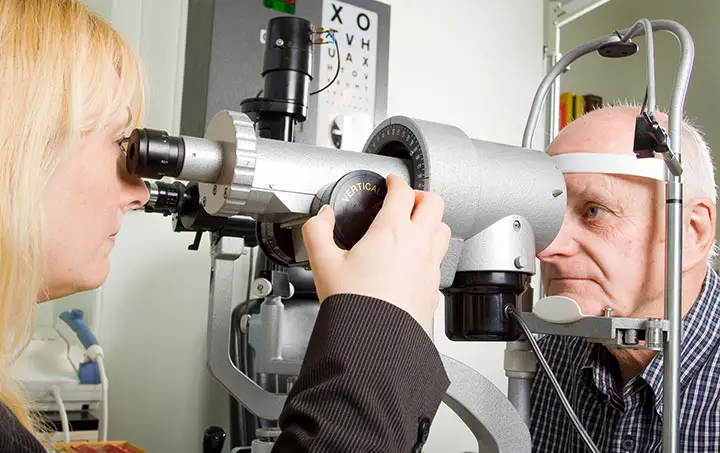
Senior Citizens and Driving: What You Need to Know
Eyesight and reflexes tend to get a bit duller as we age; they degrade so slowly that most people don’t even notice it in time. When you’re behind the wheel, safety is more important than anything, and luckily there are ways to minimize various risk factors while working on safer driving habits and practices, regardless of your age.
When is the appropriate time to stop driving?
Depending on where a person lives, it’s either the law or personal circumstances that will impose driving restrictions. In the United States, seniors need to pass special driving tests in order to be able to continue to drive. The laws concerning driver’s licenses are mandated by state governments, which means that the situation is different in each.
The vast majority of states, however, don’t require actual road tests for license renewal, regardless of age, as these tests are too tedious, expensive, and more importantly, very time-consuming.
If you live in a state where no such laws (and tests) exist, you’ll have to evaluate your own ability to drive safely or RequestLegalHelp. Individuals age at different tempos, and along those lines some people would be perfectly fit to drive by the time they reach 70 while certain 60-year-old seniors may find such ventures incredibly challenging.
Statistically speaking, people at the age of 70 (and obviously older) are considerably more prone to losing their ability to drive safely. Furthermore, most seniors become very fragile by this point, and they’re also more likely to suffer serious injuries.
Ultimately, it’s up to you to determine when is the appropriate time to give up driving while considering your own set of circumstances.
In what ways does aging impact driving skills? 
The four most important prerequisites of safe driving are a good sense of hearing, clear vision, high spatial awareness, and quick reflexes. Aging affects all of these abilities in all people indiscriminately, at varying degrees.
Hearing problems affect balance and spatial awareness, but they can also cause a series of other problems when driving that are most commonly manifesting as ticks or ‘phantom’ sounds. On another hand, the hearing loss leaves the driver unable to communicate with other participants in the traffic, whether it be through not being able to hear the honks, the siren of a firefighter wagon, or pedestrians.
Clear sight allows drivers to measure the safe distance between their car and other vehicles, spot road signs on time, and stick in their driving lane. Having problems with any of these can significantly increase driving risks.
Spatial awareness refers to a person’s ability to recognize objects and people in their surroundings, as well as the awareness of one’s own position in relation to others. A reputable car crash lawyer will always highlight the dangers of driving distracted or operating under the influence of alcohol, but one of the less-known causes of accidents is not related to either of these: spatial awareness is another component that can have a major impact on someone’s ability to drive safely. Poor spatial awareness is, after alcohol and substance abuse, the leading cause of car crashes; if you’re experiencing this issue and want to continue to drive anyway, you may want to at least have good auto insurance.
Simple tips to continue driving safely
At least some of the four aforementioned skills can’t be polished, no matter how much a person tries to. The main prerequisite of safe driving when a person reaches a certain age is to be cognizant of the fact that their skills have rusted before they can come up with adequate strategies to fill in these ability gaps.
Regular doctor checkups
The shortest route to knowing whether or not you can continue driving safely is to talk to your chosen doctor; private clinics will give you a pass more often than not since you’re paying them while county doctors who treat hundreds of patients a day typically prescribe medicine for everything and anything to get you off their list.
A doctor that knows you and your health condition through and through is the only professional that can accurately assess your driving ability (aside from the driving instructors, of course).
Automatic transmission cars for seniors who experience joint pain
If your joints are stiff and hurting, you’ll probably have a hard time steering and braking. While exercising can certainly help a lot, you can make your driving experience both smoother and safer by switching over to an automatic transmission mechanism.
This way, you won’t have to move your arms as much, although leg and ankle pain can still cause you problems.
Glasses and contact lenses for better vision 
Even if you had pristinely clear eyesight when you were younger, your vision isn’t what it used to be at this particular point in time. Although some may consider wearing glasses as not overly classy, it’s the best way to combat partial blindness.
It’s important to check your eyesight annually if you’re older than 65. This is the period where eyesight deteriorates at a faster rate, so you will probably have to switch lenses more frequently in turn.
Consider hearing aid
Tinnitus is one of the most common hearing problems of pretty much half of our society due to the massive sound pollution our world is facing for the past several decades. Buzzing noises and the absence of actual silence are the first indicators of hearing loss. It would be wiser to start using a hearing aid before your senses degrade even further.
Don’t drive at night and if the weather is bad
Nighttime driving should be avoided completely. Aside from the fact that even younger people sometimes struggle to see everything clearly once the sun goes down, it’s the blinding headlights that could cause you problems. The same goes for bad weather, as the traction won’t go in your favor if it’s either raining or snowing.
If you’re not feeling well, don’t drive
The most obvious suggestion is usually the most ignored one. The percentage of senior citizens who are feeling completely healthy and do not suffer from any chronic diseases is so small that it could be ascribed to statistical error.
If you’re experiencing any kind of health issue that you’re not accustomed to, whether it be a fit of sneezing, stomach aches, upset stomach, or anything similar, it’s much safer to stay home.
We hope that this brief guide was useful to you and that you’ve learned something new today on how to approach driving as a senior citizen.